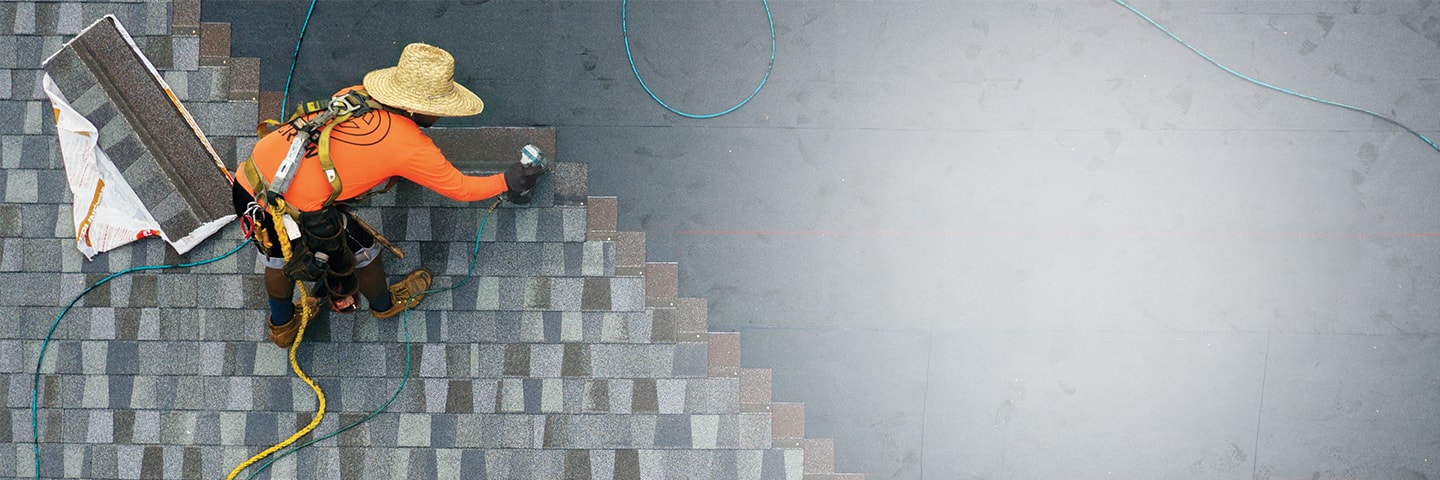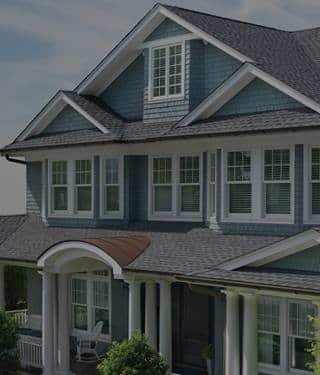
How to maintain your roof
Minor Roof Maintenance to Prevent Major Problems
You might assume a roof needs attention only when it’s damaged or leaking. The reality is that proper maintenance may help prevent that damage. It’s as simple as doing some of your own roof upkeep, including simple inspections and gutter maintenance.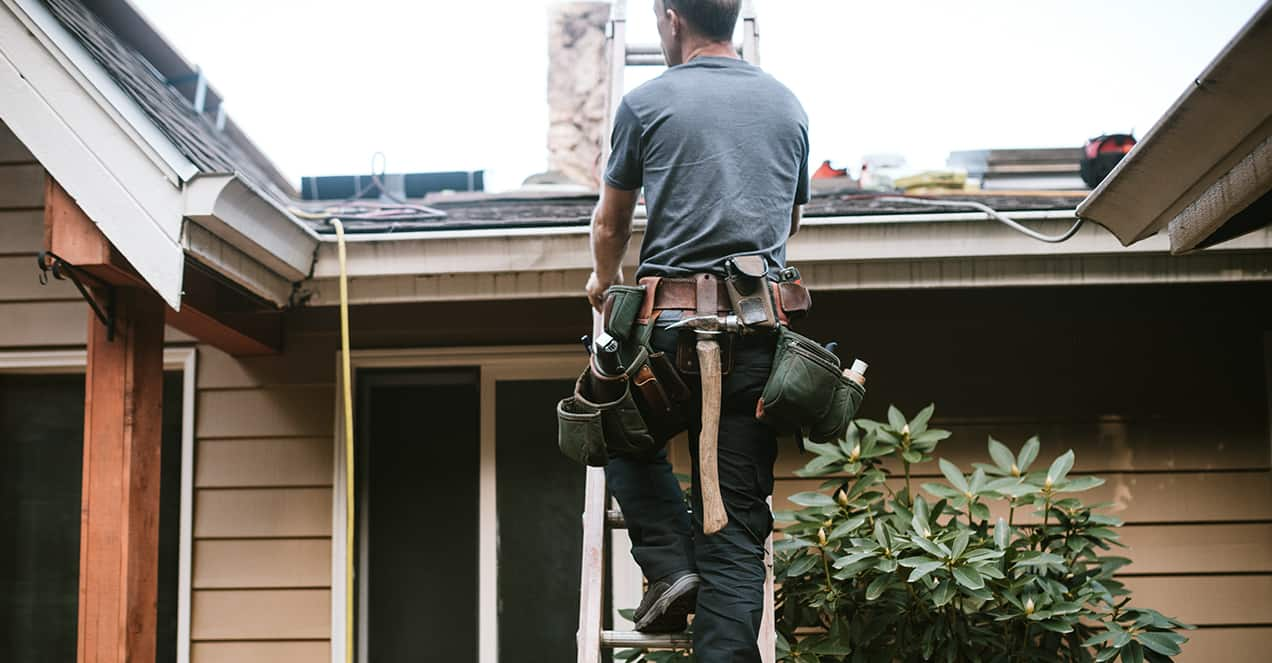
Perform Simple and Safe Roof Inspections
Choose a day once or twice each year to inspect your roof. If you’re comfortable climbing a ladder, you can see your roof up close. If not, you can do a relatively thorough inspection from the ground using binoculars. Look for:
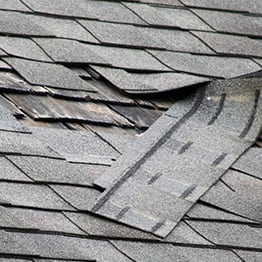
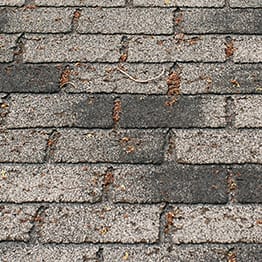
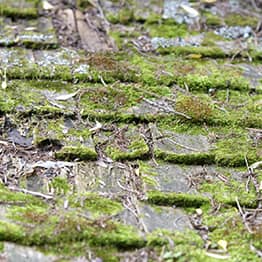
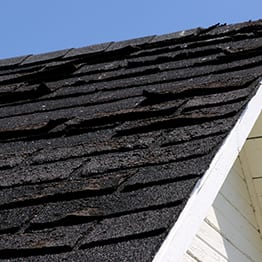
Minor repairs — like a cracked or missing shingle — may be easy for you to handle yourself. However, you may want to leave larger or more complicated issues for a professional roofer. Either way, make sure you review the manufacturer’s warranty before you have any roof work done (even an inspection), to keep your roof under warranty
Unclog Your Gutters
Gutters guard the structural integrity of your house by channeling water away from its foundation, but they also protect your roof. Gutters keep water away from roof shingles and prevent ice dams, which form when snow melts on higher levels of your roof and freezes as it runs down the colder shingles — an issue that’s as bad as having standing water on your roof.
Proper gutter maintenance is one of the most important ways to prevent serious water damage to your home. Fortunately, most homeowners can fix gutter clogs — the most common gutter problem — themselves. If your gutter is clogged, water may sit on your roof and cause leaks. It’s a good idea to check gutters twice per year and after big storms.
To start, use caution to climb up to examine the top of your gutters. From there, work in small sections to scoop up debris along gutters and downspouts, then drop the waste into a bucket or onto a tarp below. Clogs are clear if you can run garden hose water from the roof to the ground below. Be sure to call in a roofing or gutter professional for more stubborn clogs or if you’re uncomfortable on a ladder.
Roof Cleaning
Streaks and stains on roofs are typically caused by algae, moss or lichens, which grow in humid climates. These creepers can shorten a roof’s lifespan by holding moisture against the surface, causing pitting and feeding on the shingles, all of which can lead to problems as they sprout and darken.
- Cleaning your roof: Your best bet? Call a professional to clean your roof. Too much water pressure of using a power washer could loosen or damage your shingles, causing premature shingle failure.
- To kill mold: Use a treatment of chlorine bleach or copper sulfate solution applied with a low-pressure garden sprayer can kill the mold, algae, or fungus. Do not use traditional chemical cleanser as it may be harmful to your landscaping, pets and children.
- To reduce moss growth: We recommend routinely cutting back trees and removing leaves, as it will allow sunlight to dry up the moisture that moss thrives on. Another solution is to nail zinc or copper strips to the ridgeline; as rain washes across, it creates an environment where moss cannot grow.
- To prevent streaks and stain: Select algae-resistant shingles with StainGuard® or StainGuard® Plus that have a specially formulated granule that inhibits algae growth.
Managing Damage After a Storm
The chance of roof damage goes way up following a severe storm. Be sure to call in a professional roofer if you see any of these signs.
- Water inside your home (tarp your roof, then call your insurance company)
- Clogs or damage to gutters and downspouts
- Streaked or stained shingle
- Water stains, bubbled paint or wetness on interior walls and ceilings
- Light showing through the attic roof
- Missing, cracked, torn, or bald shingles
- Excess wear around roof penetrations like vents, pipes, and chimneys
- Shingle granules in gutters and downspouts
Impacted by a storm?
We’re here to help you through the storm with information on how to select the right contractor, tips on navigating insurance claims and a guide for your restoration process.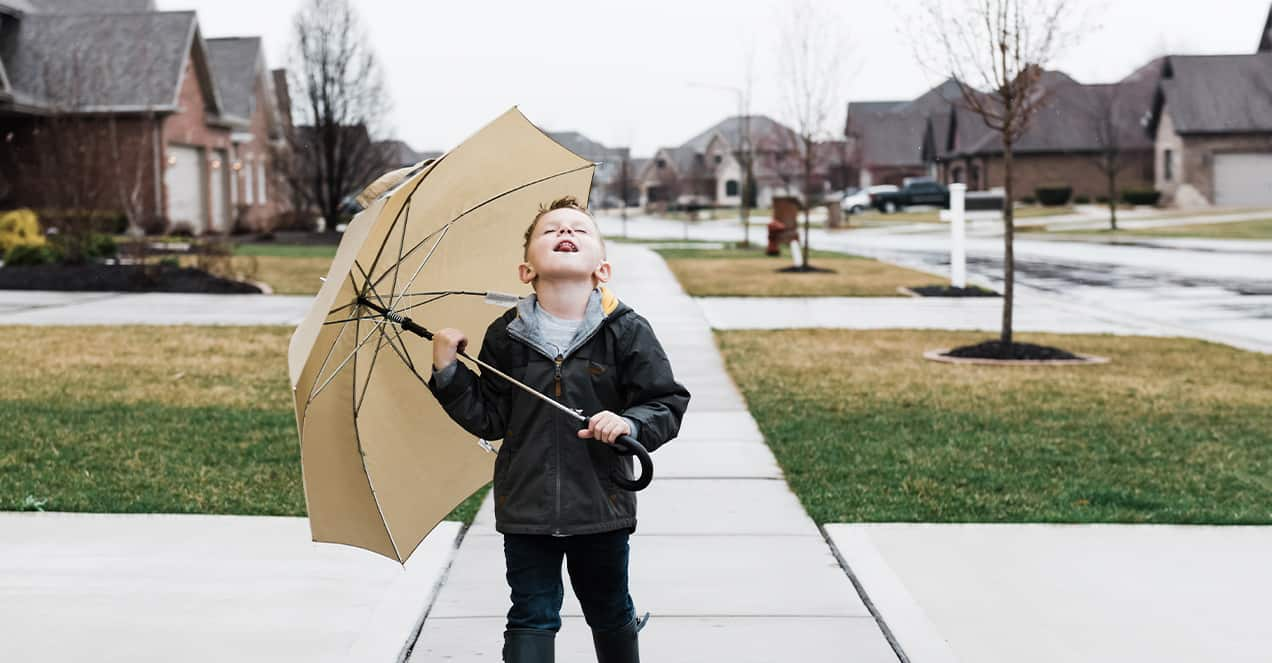
Always Check Your Warranty
Before any work begins, be sure to research the details of your warranty. In some cases, manufacturers' warranties remain valid only if specially certified contractors make repairs.
